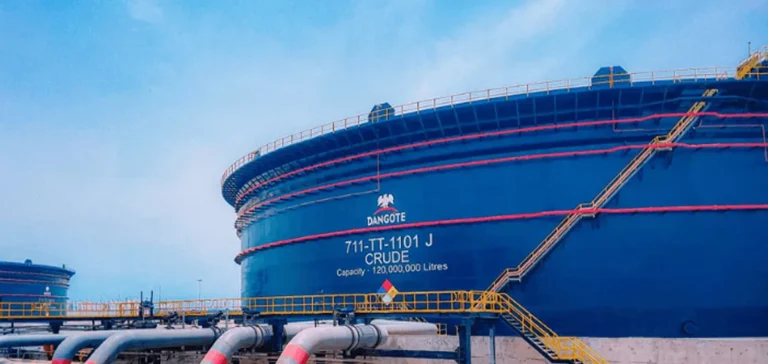Dangote Group has officially appointed David Bird, former Shell executive and ex-managing director of the OQ8 refinery in Oman, as Chief Executive Officer of its Refining and Petrochemicals division. This decision comes as the company increases the ramp-up of its Lagos complex, valued at $20bn, aiming to strengthen its influence on the African refining market.
International experience and industrial strategy
David Bird has more than thirty years of experience in the oil sector. At Shell, he notably led the Prelude Floating LNG project, worth $12bn. His arrival at the helm of the Refining and Petrochemicals division comes as the Lagos complex is progressing through its start-up phase, facing technical challenges, including design flaws and unit shutdowns. To address these issues, the site has diversified its crude supply to stabilise production.
Bird indicated that his priorities would be to optimise refinery performance and develop the group’s pan-African presence. This is a major issue for the return on investment and for Dangote’s position in West Africa.
Equity opening and site upgrade
Aliko Dangote announced that refinery shareholding would be opened to Nigerian investors, after being questioned about the role of foreign partners in the project. The group plans to list its Refining and Petrochemicals division on both the Lagos and London Stock Exchanges, without specifying a timeline for the dual listing.
At the same time, a capacity expansion is underway: the stated objective is to increase production from 650,000 to 700,000 barrels per day by the end of 2025. This development is expected to strengthen the Lagos site’s impact on regional fuel import flows, which have traditionally been dominated by Europe.
Reshaping African petroleum trade
The increase in production capacity at the Lagos refinery has already begun to disrupt established trade routes. Annual fuel exports from Europe, estimated at $17bn to Africa, could decrease as Dangote increases its market share. The sector is closely monitoring the decisions made by the new management, as the operational success of the complex is seen as a major issue for regional oil supply.
David Bird, new Chief Executive Officer, stated that the focus would be on industrial performance and adapting to the requirements of the African market. Investors are following with interest the implementation of the announced strategy and its effects on the balance of the continental oil sector.






















